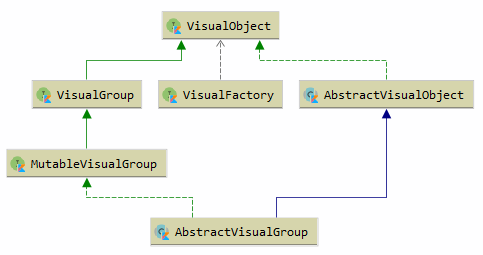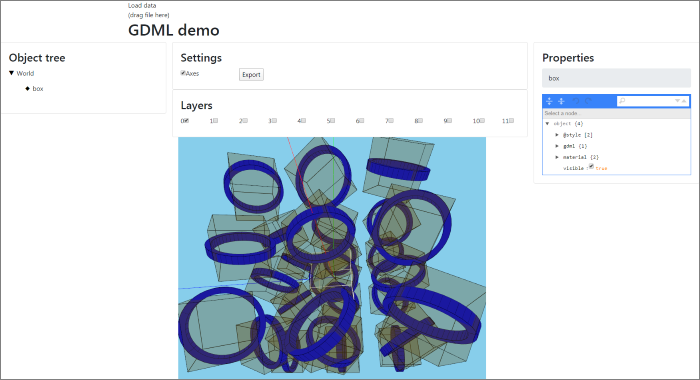| .github/workflows | ||
| dataforge-vis-common | ||
| dataforge-vis-jsroot | ||
| dataforge-vis-spatial | ||
| dataforge-vis-spatial-gdml | ||
| demo | ||
| doc/resources | ||
| gradle/wrapper | ||
| playground | ||
| ui | ||
| wrappers | ||
| .gitattributes | ||
| .gitignore | ||
| build.gradle.kts | ||
| gradlew | ||
| gradlew.bat | ||
| LICENSE | ||
| README.md | ||
| settings.gradle.kts | ||
DataForge Visualization Platform
Table of Contents
- Introduction
- Features
- About DataForge
- Modules contained in this repository
- Visualization for External Systems
- Demonstrations
Introduction
This repository contains a DataForge-based framework used for visualization in various scientific applications.
The main framework's use case for now is 3D visualization for particle physics experiments. Other applications including 2D plots are planned for the future.
The project is developed as a Kotlin multiplatform application, currently targeting browser JavaScript and JVM.
Features
The main framework's features for now include:
- 3D visualization of complex experimental set-ups
- Event display such as particle tracks, etc.
- Scales up to few hundred thousands of elements
- Camera move, rotate, zoom-in and zoom-out
- Scene graph as an object tree with property editor
- Settings export and import
- Multiple platform support
About DataForge
DataForge is a software framework for automated scientific data processing. DataForge Visualization
Platform uses some of the concepts and modules of DataForge, including: Meta, Configuration, Context,
Provider, and some others.
To learn more about DataForge, please consult the following URLs:
- Kotlin multiplatform implementation of DataForge
- DataForge documentation
- Original implementation of DataForge
Modules contained in this repository
dataforge-vis-common
Contains a general hierarchy of classes and interfaces useful for visualization. This module is not specific to 3D-visualization.
The dataforge-vis-common module also includes configuration editors for JS (in jsMain) and JVM (in jvmMain).
Class diagram:
dataforge-vis-spatial
Includes common classes and serializers for 3D visualization, Three.js and JavaFX implementations.
Class diagram:
Prototypes
One of the important features of the framework is support for 3D object prototypes (sometimes also referred to as templates). The idea is that prototype geometry can be rendered once and reused for multiple objects. This helps to significantly decrease memory usage.
The prototypes property tree is defined in VisualGroup3D class, and Proxy class helps to reuse a template object.
Styles
VisualGroup3D has a styleSheet property that can optionally define styles at the Group's
level. Styles are applied to child (descendant) objects using styles: List<String> property defined
in VisualObject.
dataforge-vis-spatial-gdml
GDML bindings for 3D visualization (to be moved to gdml project).
dataforge-vis-jsroot
Some JSROOT bindings.
Note: Currently, this part is experimental and put here for completeness. This module may not build.
Visualization for External Systems
The dataforge-vis framework can be used to visualize geometry and events from external,
non-Kotlin based systems, such as ROOT. This will require a plugin to convert data model
of the external system to that of dataforge-vis. Performing such integration is a work
currently in progress.
Demonstrations
The demo module contains several example projects (demonstrations) of using the dataforge-vis framework.
They are briefly described in this section, for more details please consult the corresponding per-project
README file.
Simple Example - Spatial Showcase
Contains a simple demonstration with a grid including a few shapes that you can rotate, move camera, and so on. Some shapes will also periodically change their color and visibility.
Example view:
Full-Stack Application Example - Muon Monitor Visualization
A full-stack application example, showing the Muon Monitor experiment set-up.
Example view:
GDML Example
Visualization example for geometry defined as GDML file.




